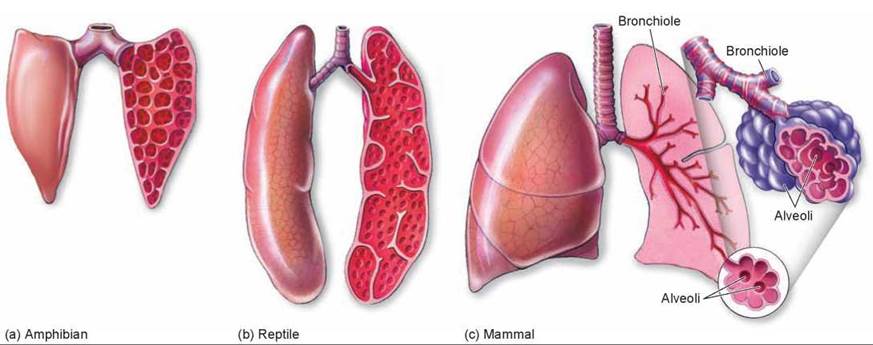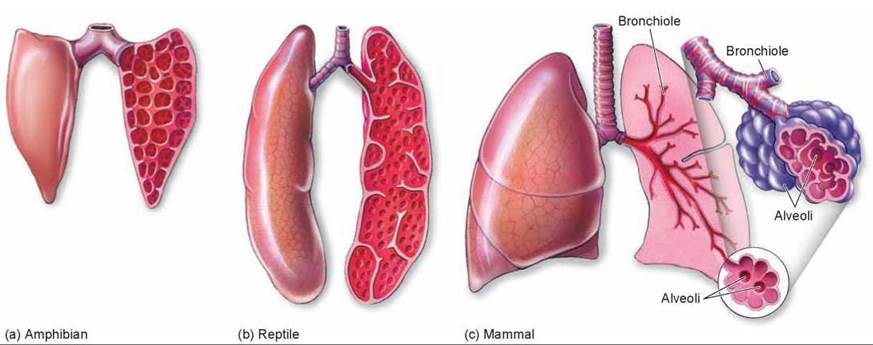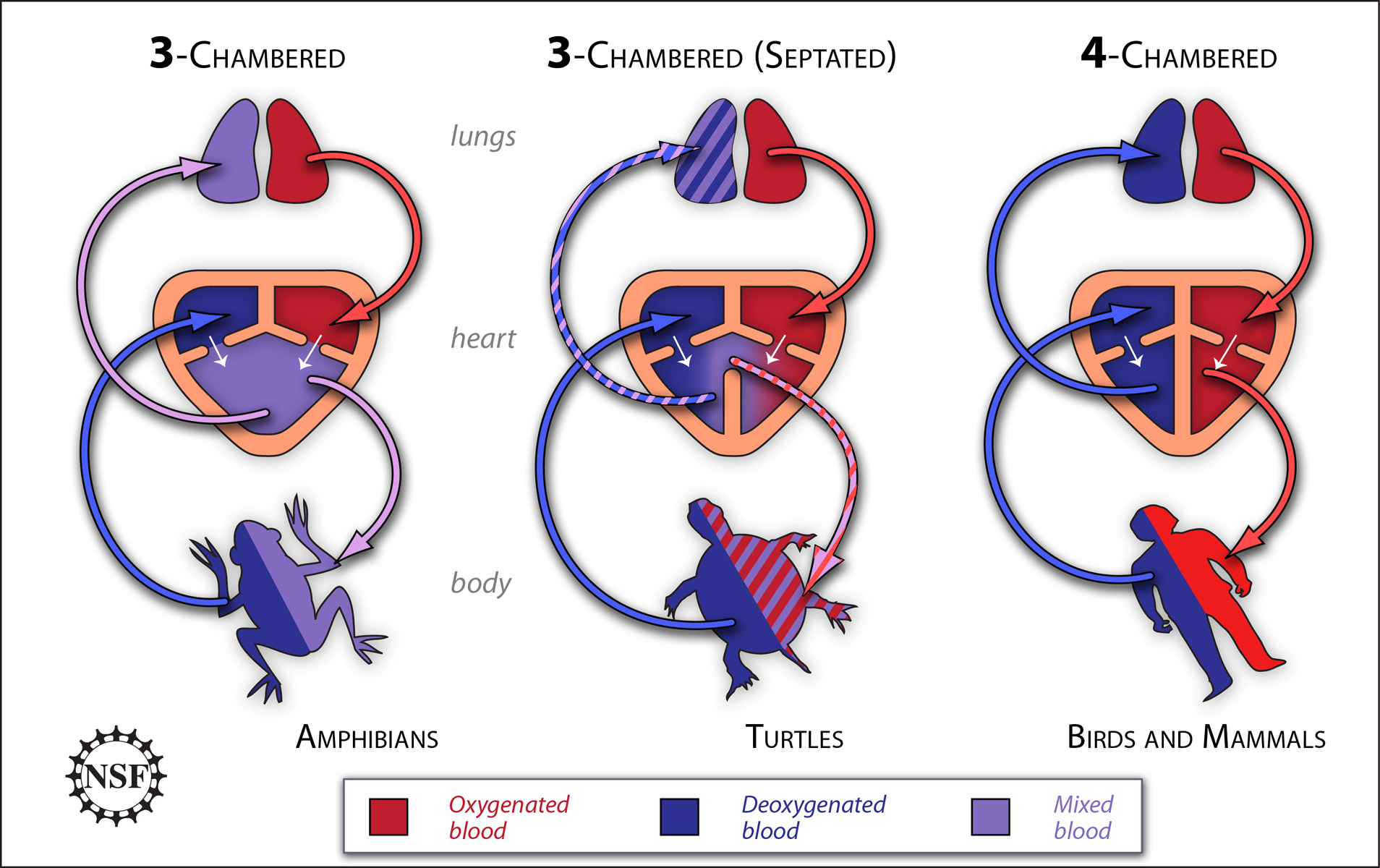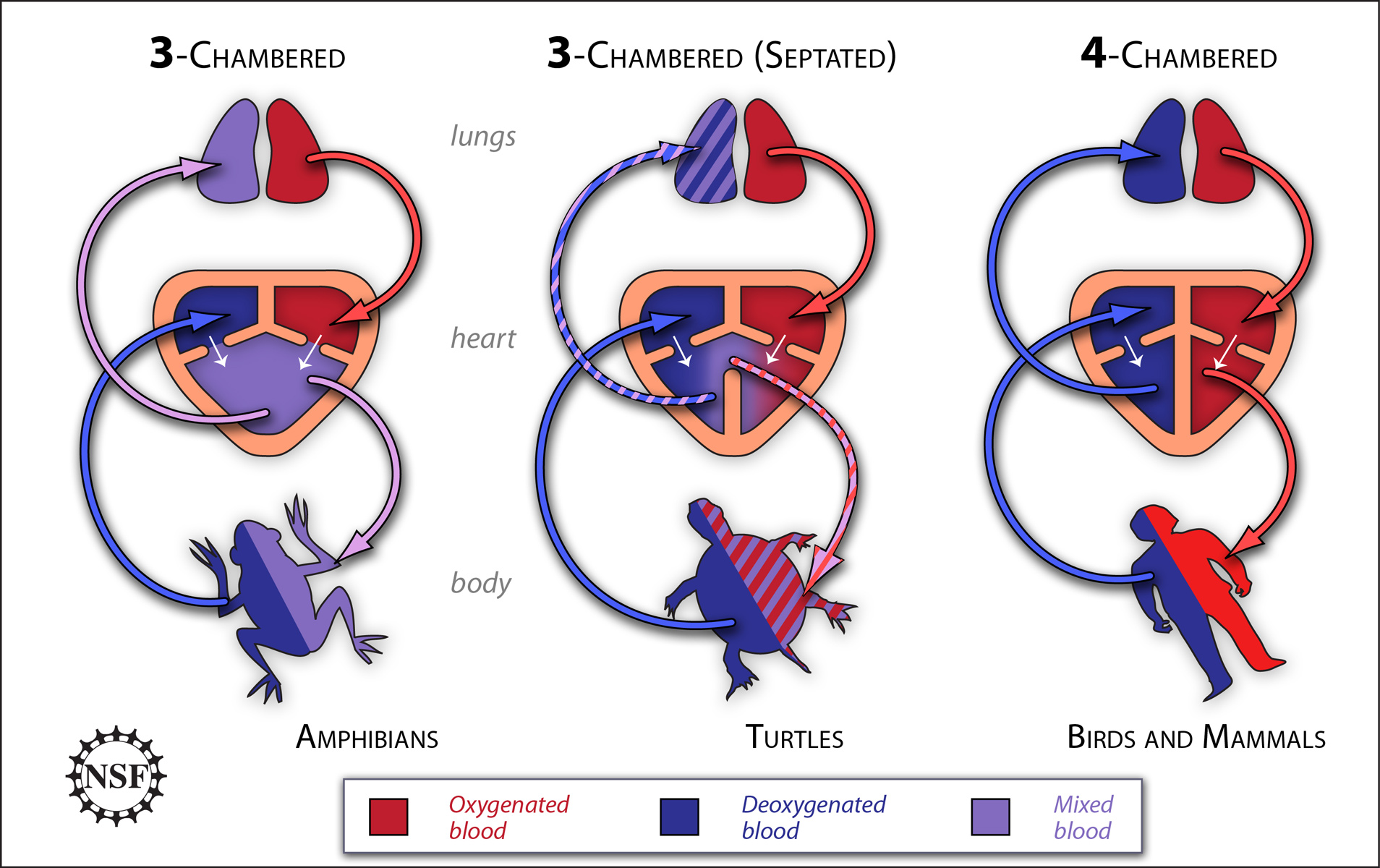Why must larger animals have an efficient respiratory system?
2 Answers
As their size is large, they need more energy.
Explanation:
Animals respire mostly by aerobic respiration. Aerobic respiration uses oxygen, taken from air and the cells produce energy which is used by these animals to live.
When their respiratory system is not efficient, it means that they are not getting sufficient energy to live. So to get enough energy to survive, these large animals require efficient respiratory system.
Good Luck :)
Respiratory system supplies respiratory gases to an organism. Large animals are mostly mammals and reptiles among vertebrates. There are only giant squids in invertebrates.
-
Oxygen must be breathed in and carbondioxide must be breathed out by an animal.
-
Oxygen is used by every living cell of the animal to produce energy by a catabolic process. Obviously large body means, large number of cells in body and higher amount of oxygen is required to be supplied.
- Carbondioxide is produced during aerobic respiration, which should be continuously removed from the tissues.
Thus, please remember that a large animal must have a closed circulatory system and a highly efficient pumping device i.e. heart to supply blood carrying oxygen to all tissues along with an efficient respiratory system.
Blood would also remove carbondioxide from tissues.
- Another important point is that a large animal may not always be metabolically highly active, such as reptiles. Their metabolic rate is slow, and their respiratory system is not as efficient as found in a mammal.
An efficient respiratory system means it must offer a large surface area of diffusion between alveoli of lungs and blood capillaries. That design is perfected only in mammals.
Large fishes increase the surface area for gaseous diffusion in gills.

( )
)
- Preventing of mixing of deoxygenated blood in heart, with oxygenated blood coming from lungs, is another advantage of mammalian design.
This would ensure supply of more of oxygen to each cell of body. This helps in maintaining a constant body temperature , as in mammals.

( )
)
Most efficient respiratory and circulatory systems together help even a 100 ton blue whale to live an active life in cold oceans.
You must note something interesting regarding size of an animal and its average breathing rate: latter decreases with size. Same is true for resting oxygen consumption/kg of body weight. Moreover large bodied animals allow diffusion of oxygen in blood at a slower rate.

